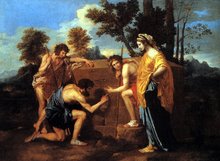
The Roman invasion and conquer of Britain (except for us tenacious Scots) was to all extents a peaceful invasion. Many of the tribes had already established contact with Rome, and several deposed chieftains had actively encouraged Claudius to embark on the venture. However, Rome was not concerned with tribal quarrels, but with the expansion of the Catuvellauni, which had jeopardised and in many cases extinguished lucrative trade routes between Rome and Britain.
I don't want to discuss the details of the Roman invasion here, everyone familiar with the history of that period will be well aware of the tactics used by the Romans, they forced chieftains to pledge their loyalty, then imposed crippling taxes upon the local populace. Dissenters were brutally crushed and any survivors would be sent as slaves to Rome, there to be sold.
I want to look at a specific area of the Roman expansion across Northern Europe, particularly Gaul and Britain. For some reason, the Romans were determined to annihilate the druids. The reasons for this extermination are not clear and history only informs us that it was the druidical practise of human sacrifice which so appalled the Romans, a practice which they themselves had once been partial to. Perhaps it's my suspicious mind, but I get the impression that there are far deeper issues involved in the reasoning behind the purge.
The annals of history don't tell us much about what it was the Druids did, they were not allowed to write their secrets, but we do know that training took up to 20 years, and may have involved learning in astronomy, astrology, herbology, medicine, and any other number of sciences which had a basis in nature, although some or all of these may have been regarded as magical arts by those who were not initiated.
Is it possible that the Romans feared the power of these men? Or was it the sway the Druids held over the people that drove the Romans to dispose of them? After all, cut off the head and the body no longer poses a threat. After the last stand of the Druids at Anglesey in 60AD, they no longer remained a force to be reckoned with. They may have possessed knowledge or secrets which died with them, we'll never know, and Britain became a civilized nation, apart from us Scots!









